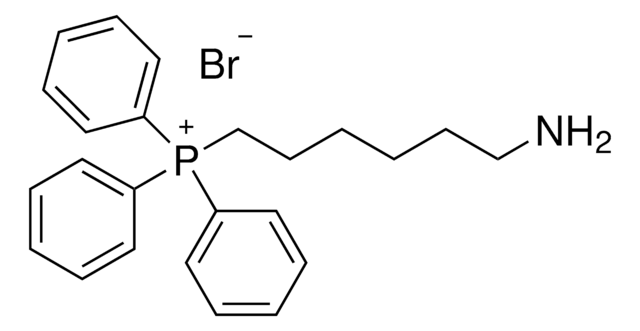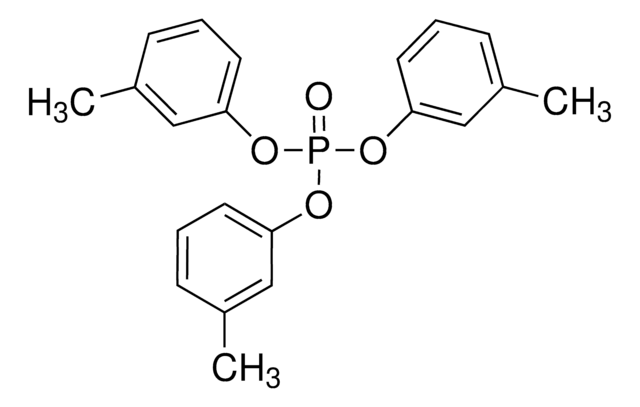905186
(9-Bromononyl)triphenylphosphonium bromide
Synonym(s):
Bromononane TPP mitochondrial tag, Mitochondria-targeting probe building block, Phosphonium lipocation tag
About This Item
Recommended Products
form
liquid
storage temp.
2-8°C
InChI
1S/C27H33BrP.BrH/c28-23-15-4-2-1-3-5-16-24-29(25-17-9-6-10-18-25,26-19-11-7-12-20-26)27-21-13-8-14-22-27;/h6-14,17-22H,1-5,15-16,23-24H2;1H/q+1;/p-1
InChI key
ACKJFSDDEOFXHT-UHFFFAOYSA-M
Application
Other Notes
Targeting lipophilic cations to mitochondria
Photoswitchable polyfluorophores based on perylenemonoimide-dithienylethene conjugates as super-resolution MitoTrackers
related product
Storage Class Code
13 - Non Combustible Solids
WGK
WGK 3
Flash Point(F)
Not applicable
Flash Point(C)
Not applicable
Certificates of Analysis (COA)
Search for Certificates of Analysis (COA) by entering the products Lot/Batch Number. Lot and Batch Numbers can be found on a product’s label following the words ‘Lot’ or ‘Batch’.
Already Own This Product?
Find documentation for the products that you have recently purchased in the Document Library.
Our team of scientists has experience in all areas of research including Life Science, Material Science, Chemical Synthesis, Chromatography, Analytical and many others.
Contact Technical Service








